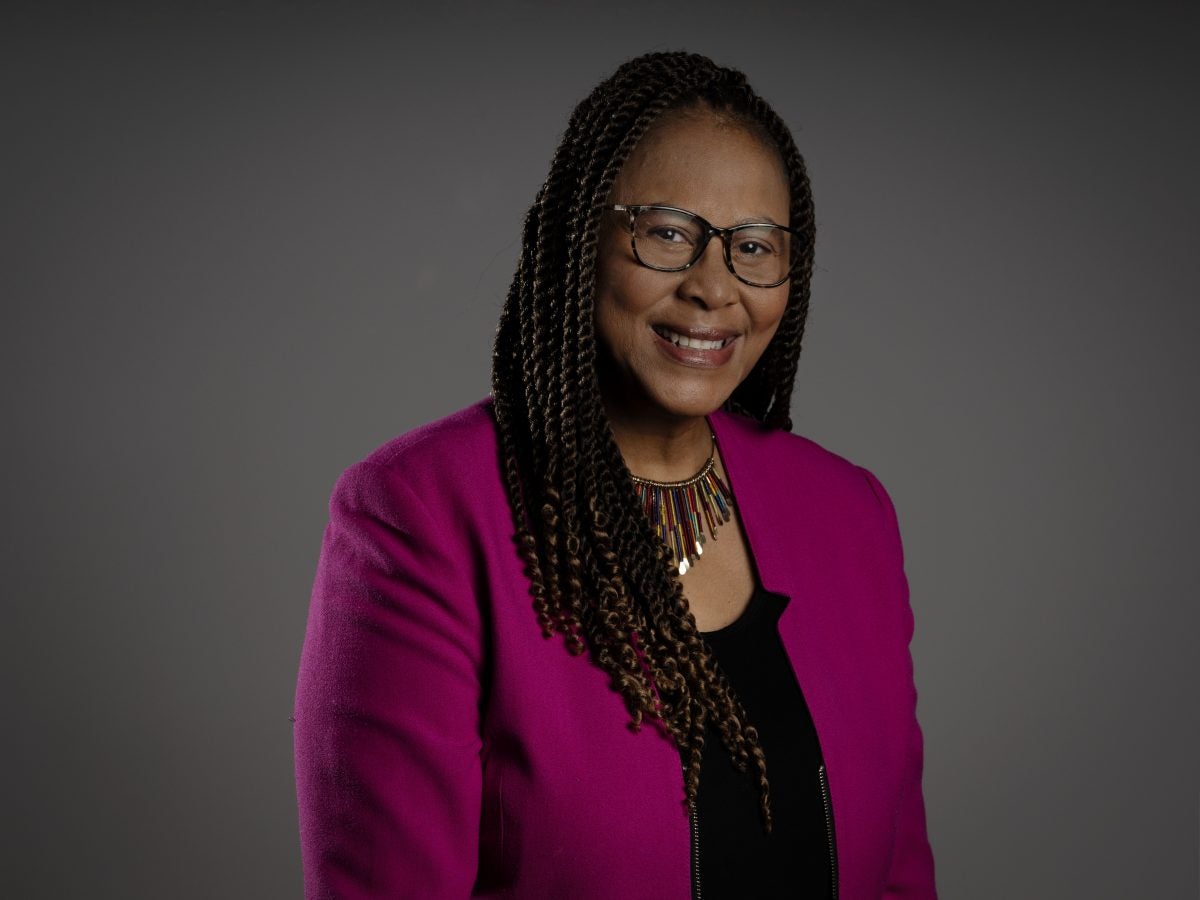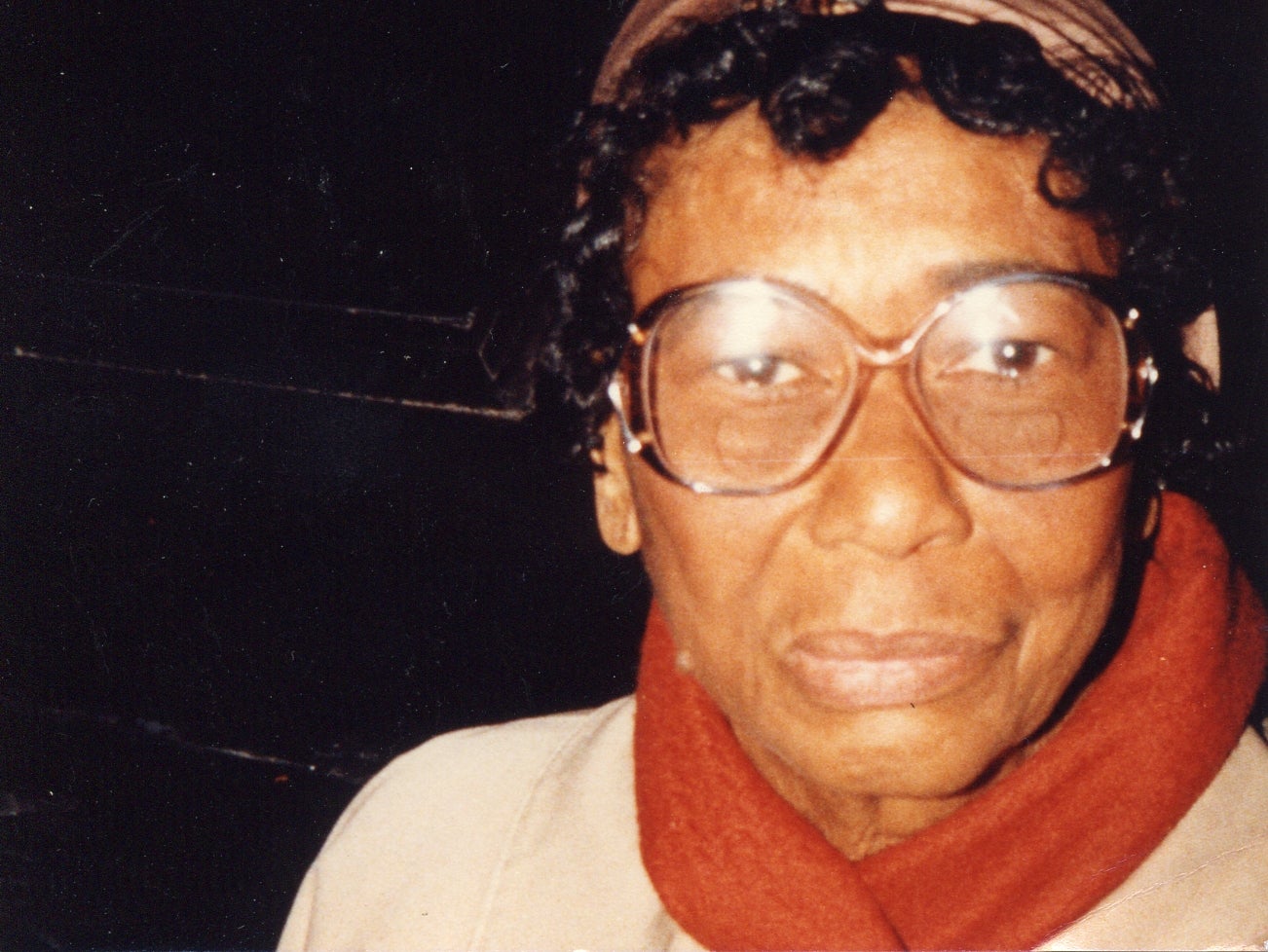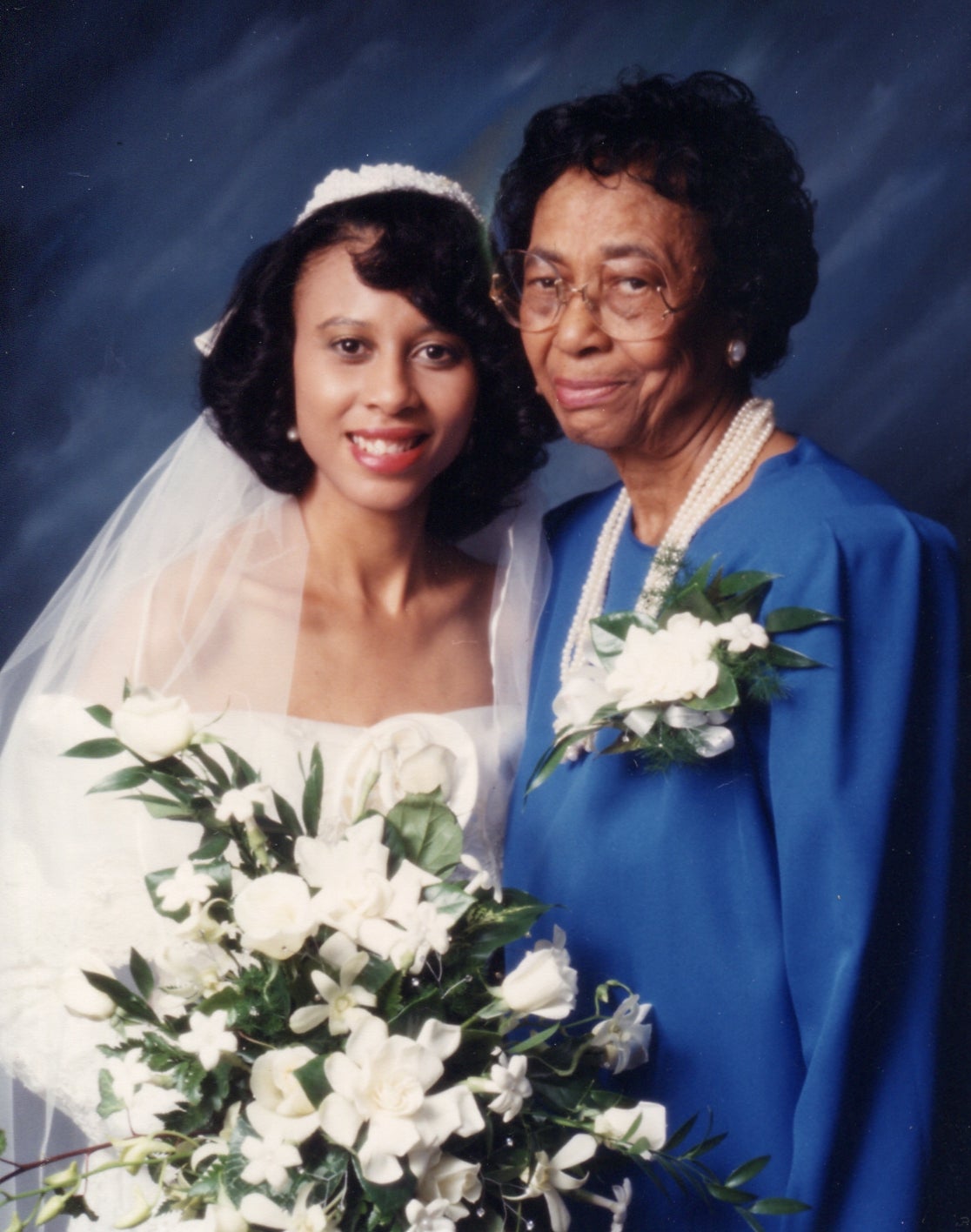
Long-time Washington Post personal finance columnist Michelle Singletary doesn’t like to brag about her professional success That’s ok, I’ll do it for her.
After more than 25 years leading her own wildly successful personal finance column with leading publication The Washington Post, she has been tapped for her insight by Oprah Winfrey and continues to be sought out for her commentary by countless major news platforms.
With a storied career that spans decades among other notable accomplishments, there’s a lot to boast about. But to hear her speak, it’s obvious she’s as down-to-earth as they come. That duality stems from her humble upbringing helmed by her beloved grandmother who literally rescued Singletary and her four siblings as children.
“When I was about four years old, my grandmother saved us after having a dream that we were in trouble,” the Baltimore native shared, revealing that the hunch was right, and her parents had essentially abandoned them. “My mother and father had left us alone in our house for some time and my grandparents found us without food there. So they scooped us up and took us back to their home, leading to us living with them permanently.”

That fateful move changed the trajectory of Singletary’s life and shaped how she viewed fiscal responsibility. “I like to joke that if she held a penny, Lincoln would scream,” Singletary shared about her grandmother who she said was the best money manager she’d ever met.
Although she earned a little more than minimum wage at the time of Singletary’s formative years, the matriarch never missed a bill or a meal for her grandchildren.
“To this day, I am in awe of how she was able to raise five grandchildren—and my grandfather often wasn’t in the house,” Singletary shared. “He would come and go and his paycheck would come home, sometimes not. And my grandmother worked as a nursing assistant at a hospital in Baltimore, which didn’t pay very much. I don’t think she ever made more than $13,000 a year. And she also didn’t take the cash payments that she was entitled to as our guardian, because she didn’t like how the state treated her. She just made due and it left an indelible mark on me.”

How did her grandmother make this all happen on such a tight budget? Singletary says it all boils down to honesty.
“She was unapologetic about only doing what she could afford and nothing more,” the journalist said. “We never went without what we needed but there were some wants she just didn’t entertain from us because she knew it wasn’t a necessity. That’s a belief system I’ve carried through my life.”
Singletary said she fell into financial reporting after working at Baltimore’s Sun and Evening Sun newspaper covering economic equity, and an editor of hers noticed her talent for simplifying complicated financial matters.
From there, she was recruited by The Washington Post in 1992 and has since earned a spot as one of the longest-running Black woman financial reporters of a nationally syndicated column in the country.
Over the years, she earned the trust of millions of readers through her straightforward insight on complicated money matters, while still delivering via a writing voice laced with comfort and familiarity.
“I owe that all to my grandmother, who taught me to be myself at all times, even when it comes to how I spend my money,” Singletary. “I’ve never felt the need to look like I am rich—I just try to make wise decisions.”
One of the smart choices she’s preached to her readers for years is avoiding highly speculative, get-rich-quick investment models and following a tried and trusted wealth-building strategy.
“Live below your means and put your extra money in an index fund,” she said earnestly. “I know that’s not as sexy as investing in real estate or crypto, but boring works.”
And she walks her talk.
Singletary confirmed that aside from her home, she doesn’t have a robust real estate portfolio because she never felt the need to build one despite what other financial experts advised.
“Real estate should be just one part of your investment strategy…an asset if you will, not your entire retirement plan. Don’t go into debt trying to get rich. It’s not worth it.”
She also admitted that much to her children’s chagrin, she often exercises frugality when the need arises, and advises others to unapologetically do so as well.
“As a young reporter, I was always shocked when my colleagues would buy lunch everyday. Here I am with my paper bag and sandwich while they purchased food daily. Until this day, I’m still extremely aware of where every one of my dollars go. If I’m at a fancy dinner with my family or an important colleague and I don’t finish it, I’m packing it up for later. Why would I waste good food?”
It’s this unfailing authenticity that has not only led to her building an empire, but earning the trust of curious and concerned readers aiming to better their own financial futures. Leading them to a path a prosperity is a tall task, but Singletary is the one to do it. After all, her grandmother has prepared her for it already.